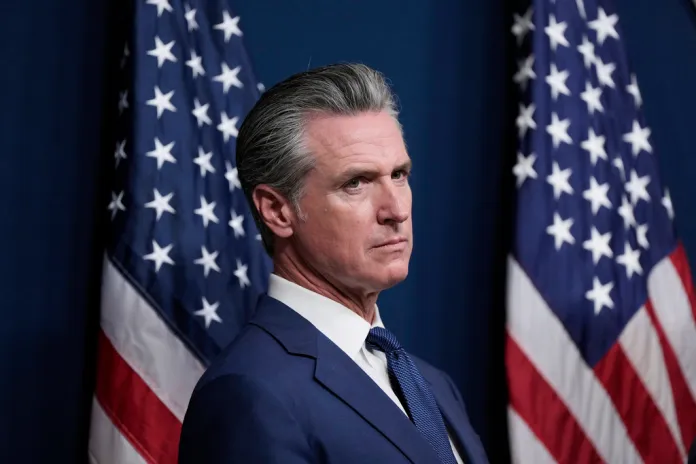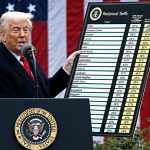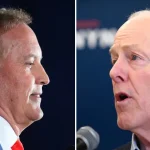Gov. Gavin Newsom (D-CA) is debating signing off on several bills that could put him in a tough position politically if he chooses to run for president in 2028.
California legislators over the weekend gave their final approval to various bills, including on artificial intelligence, ultraprocessed food in schools, and antisemitism. Should Newsom sign the bills into law, he could risk alienating big donors and interest groups ahead of his likely entrance into the 2028 presidential race.
One of those bills is California Senate Bill 53, which would require transparency reports from the developers of powerful “frontier” AI models such as OpenAI’s ChatGPT, Google’s Gemini, and xAI’s Grok. The bill, led by Democratic state Sen. Scott Wiener, would protect whistleblowers and require leading AI companies to develop safety frameworks that specifically detail how they seek to reduce “catastrophic risk.”
Catastrophic risk is defined as when an AI model is believed to have played a significant role in contributing to an event that causes more than 50 casualties or over $1 billion in damages.
OpenAI, the technology trade group Chamber of Progress, and the Abundance Institute are among entities that have expressed concern about the bill due to worries that it would derail innovation, and argue that a comprehensive, uniform approach to AI at the federal level is required instead of state laws. Opposition to the bill in the Golden State, whose Silicon Valley is home to the most powerful tech industry in the country and gave millions to Newsom’s 2022 reelection campaign, has also been manifested by lobbying groups such as CalChamber, Computer & Communications Industry Association, and TechNet, which represents Apple, Amazon, and Google.
As Newsom weighs the loss of support from the tech industry that could ensue should he sign the landmark legislation into law, he could face another dilemma in the form of a bill that seeks to ban ultraprocessed foods from public schools.
The governor will likely sign Democratic California Assemblyman Jesse Gabriel’s bipartisan Assembly Bill 1264 into law. Multiple large interest groups have come out against the bill, meaning he could lose valuable support from the agriculture industry and other sectors. The American Beverage Association, California Grocers Association, and California Farm Bureau wrote in a Sept. 8 letter that the bill would create an “unnecessary liability for schools serving these products, as well as manufacturers producing food subject to these arbitrary definitions.”
“While AB 1264 aims to improve public health by reducing UPF consumption, it could unintentionally harm California farmers by lowering demand for crops tied to these products, disrupting supply chains and imposing costly transitions,” the California Farm Bureau said earlier this year. “Any legislation must consider the ripple effects on agriculture, support farmers in adapting to changes, and use science-based standards in food classification.”
As he weighs approving or vetoing the bills ahead of an Oct. 12 deadline, Newsom is also eyeing several bills that could fuel opposition to a likely 2028 campaign from both sides of the aisle.

REDISTRICTING WARS THREATEN TO MAKE CONGRESS MORE PARTISAN
A piece of legislation that would create an Office of Civil Rights and an Antisemitism Prevention Coordinator to work with educators to “proactively prevent antisemitism,” while significantly scaled back from its original language, could attract opposition to Newsom from the Democratic Party’s far-left flank, as well as civil rights groups.
And a bill that would require most Immigration and Customs Enforcement and other law enforcement officers to cover their faces with masks while carrying out operations would likely galvanize opposition to Newsom’s candidacy from Republicans.























